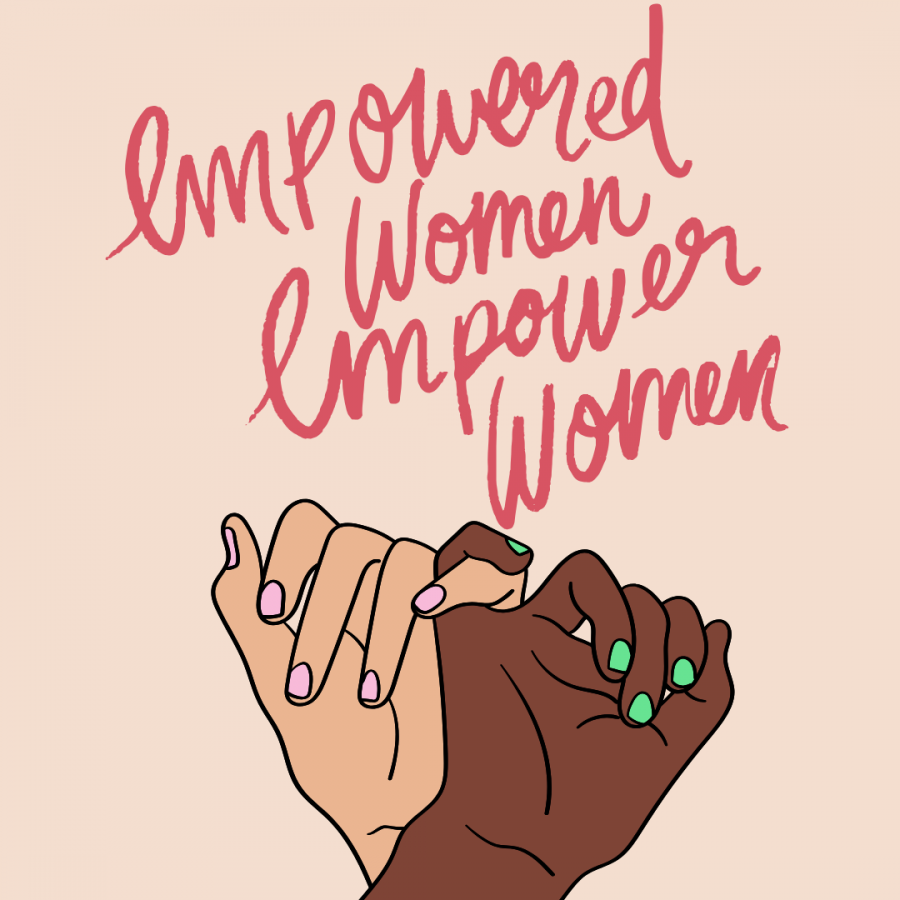OPINION: Black women helped shape civil rights; it’s not talked about enough
Fight for civil rights is often credited to Black men
March 30, 2020
With Women’s History Month coming to an end, I began asking myself who my favorite women that I learned about in history classes were. I was unable to think of one.
In schools, U.S. history is often taught through a heterosexual cisgender white male perspective, and because of that people often don’t hear about women who helped propel society forward.
My whole life I’ve been told that “well-behaved women rarely make it into history,” but I think the statement really means women who abide by societal norms make it into history— and women of color make it in even less.
Here are five Black women I believe are missing from U.S. history books.
Ella Baker
While Baker was not the face of the civil rights movement, she was behind the scenes and helped to inspire others in the movement by leading through actions.
In the 1940s, Baker was the director of branches for the NAACP. She focused on involving members of the Black community to join in the fight for civil rights.
Baker helped leaders at the local level create campaigns that would advance the Black community forward in society, including campaigns against lynchings and for equal pay for Black teachers. In the 1950s, Baker worked with Martin Luther King, Jr. to help him organize the Southern Christian Leadership Conference (SCLC), and mentored young civil rights activists in the community.
Young activists mentored by Baker went on to continue progressing the movement. Some founded the Student Nonviolent Coordinating Committee (SNCC) in 1960 while others were at the forefront of the Freedom Rides.
Cornel West, political activist, said in an interview with Time magazine that without Baker there would have been no Civil Rights Movement.
Elaine Brown
Brown is a former member of the Black Panther Party for Self-Defense. In 1974, she became chair of the party — she is the only woman to have led the revolutionary group in history.
Under Brown’s leadership, the party continued to focus on helping members of its community by providing food and free medical care to those who were unable to afford it.
Brown’s influence led to the party members becoming a critical component of Oakland’s educational and political scene.
During the Black Power movement, women often found their contributions being overshadowed by men who were the face of the movement.
Even when Brown’s time with the Black Panther Party ended, she continued to speak out against the mistreatment of Black people in America. She wrote the book “A Taste of Power,” giving a look into what it is like to be a Black woman in America.
Angela Davis
From the late 60s and early 70s to now, Davis has used her platform to speak out on civil rights issues in America.
From the shooting death of Trayvon Martin in 2012 to the murder of Michael Brown in Ferguson, she continues to try to educate people on the mistreatment of the Black community.
Davis is a former member of the Black Panther Party and in addition to being an activist for the Black community, she is also a feminist activist.
Time Magazine considers her one of the most influential women of the past decade, but I have never seen her in a history textbook.
In 2008, Davis retired from her position as a professor at University of California Santa Cruz, but she continues to use her platform to speak out on issues that affect the Black community.
Marsha P. Johnson
A lack of LGBTQ history in textbooks isn’t specific to a single person; the entire community deserves to have its history taught to students like the fight for womens’ suffrage is taught.
Marsha P. Johnson was at the forefront of the fight for LGBTQ rights and on the frontlines of the Stonewall riots.
While Johnson is best known for her involvement with Stonewall, she also used her platform to speak out against the oppressiveness of policing.
Johnson played a large role in creating safe spaces for youth; she helped found STAR House, one of the first safe spaces in America for homeless teens in the LGBTQ community.
In 2017, Netflix released “The Death and Life of Marsha P. Johnson,” a documentary about Johnson’s legacy.
Coretta Scott King
Coretta Scott King was not just Martin Luther King Jr.’s widow, which is often how history depicts her. More importantly, she was an activist.
Before Scott King married, she was active in racial justice politics and the peace movement. During the Vietnam War, Scott King spoke out against U.S. involvement in the war and continued to voice her criticism about the U.S. and its engagement in war throughout her life.
When Martin Luther King, Jr. was assassinated, Scott King could have stepped away from the movement, but instead she chose to stay close to the forefront.
If it were not for Scott King, her husband’s legacy would not be the same. Scott King wanted to make sure that her husband’s philosophies lasted beyond his years and she continues to carry on his nonviolent efforts.
































































































































